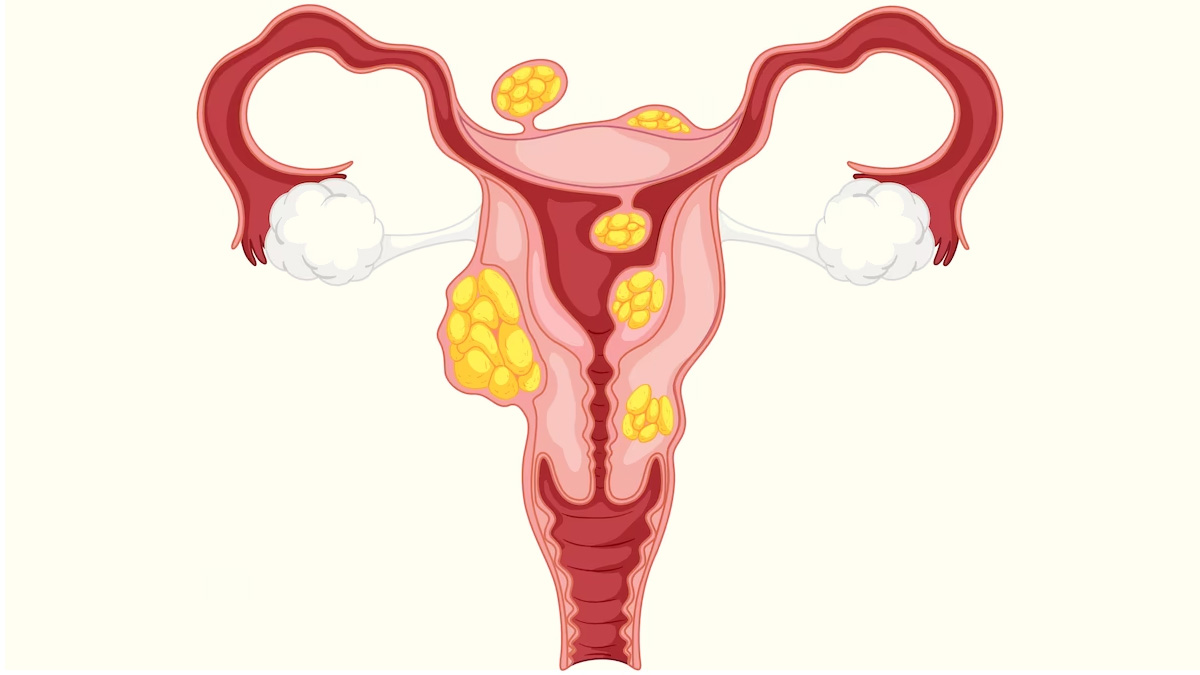
Every month, women go through a natural process known as menstruation, where the uterus sheds its lining. While menstruation is a normal part of a woman's reproductive cycle, certain conditions can arise, causing discomfort and concern. One such condition is ovarian cysts.
Table of Content:-
What are Ovarian Cysts?
Ovarian cysts are fluid-filled sacs that develop on or within the ovaries. They are a common occurrence in women of reproductive age and usually resolve on their own without causing any noticeable symptoms or complications. However, during menstruation, the presence of ovarian cysts can sometimes lead to unique challenges.
"Ovarian cysts may cause pain in the lower abdomen, irregular cycles, and painful intercourse,” said Dr Anjana, Director and Head, Obstetrics And Gynaecology, Fortis Hospital, Noida.
“Simple defecation can be uncomfortable in some cases of endometriotic cysts (blood-filled cysts). Larger cysts can possibly result in infertility”, she added.
The Menstrual Connection
Functional Cysts
The most common type of ovarian cysts related to menstruation are functional cysts. These cysts form as a result of the normal menstrual cycle. During each menstrual cycle, the ovaries produce follicles that contain eggs. In some cases, these follicles do not rupture or release the egg, leading to the formation of cysts.
Hormonal Influence
Hormones play a significant role in the development and functioning of ovarian cysts. During menstruation, hormonal fluctuations can affect the growth and persistence of these cysts. In particular, imbalances in oestrogen and progesterone levels can impact the formation and resolution of cysts.
Also read: 7 Signs Of Polycystic Kidney Disease
Symptoms and Challenges
While many ovarian cysts go unnoticed, some women may experience symptoms during their menstrual cycle. These symptoms can include:
Pelvic Pain
Ovarian cysts can cause dull or sharp pain in the lower abdomen or pelvic region. This pain may be more pronounced during menstruation due to increased blood flow and hormonal changes.

Irregular Menstruation
Ovarian cysts can disrupt the normal hormonal balance, leading to irregularities in the menstrual cycle. This may manifest as irregular periods, heavier or lighter flow, or changes in the duration of menstruation.
Bloating and Discomfort
Ovarian cysts can cause bloating, abdominal discomfort, and a feeling of fullness. These symptoms may be more noticeable during menstruation due to hormonal fluctuations and increased fluid retention.

Treatment Options
According to Dr Anjana cysts are of two types, they can be malignant or benign. Benign cyst is likely due to hormone imbalance, so hormone replacement therapy can help to get rid of it.
Watchful Waiting
In most cases, small ovarian cysts that are asymptomatic resolve on their own within a few menstrual cycles. Regular monitoring and follow-up with a healthcare professional are recommended.
How To Manage Pain
Over-the-counter pain relievers can help alleviate menstrual pain associated with ovarian cysts. Heat therapy, such as using a heating pad, can also provide relief.
Hormonal Birth Control
Oral contraceptives or other hormonal birth control methods can regulate hormone levels and prevent the formation of new cysts. They can also help shrink existing cysts.
Surgical Intervention
In rare cases when cysts are large, persistent, or causing severe symptoms, surgical removal may be necessary. This can be done through minimally invasive procedures such as laparoscopy.
Also read: Ovarian Cysts Vs. PCOS: Gynaecologist Lists Out Key Differences
Ovarian cysts and menstruation can intersect, presenting unique challenges for some women. Understanding the relationship between the two is essential in managing symptoms and ensuring optimal gynaecological health.
If you experience persistent or severe symptoms related to ovarian cysts during menstruation, it is advisable to consult with a healthcare professional for proper evaluation and guidance. With timely management and care, women can navigate these challenges and maintain their overall well-being.
Also watch this video
How we keep this article up to date:
We work with experts and keep a close eye on the latest in health and wellness. Whenever there is a new research or helpful information, we update our articles with accurate and useful advice.
Current Version